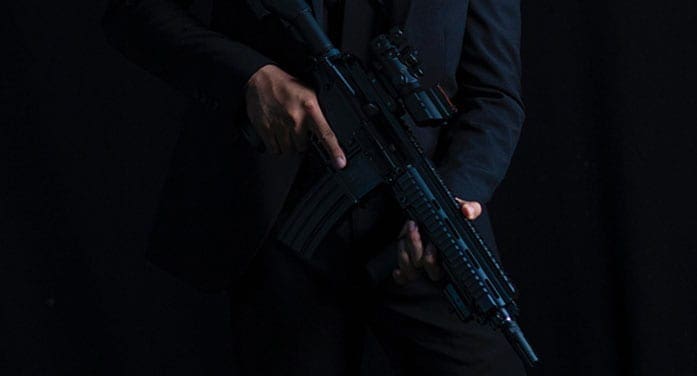By Paz Gómez
Research associate
Frontier Centre for Public Policy
A prohibition is the easiest way out of a policy problem. In enacting one to target gun violence, the federal government has admitted failure to find a solution that preserves both rights and lives.
The deadliest mass shooting in Canadian history took place in Nova Scotia on April 19. The shooter didn’t have a gun licence; he obtained the arms illegally. Nevertheless, Prime Minister Justin Trudeau has banned 1,500 models of what he describes as assault-style weapons, unfairly targeting lawful citizens and hurting gun businesses.
The prohibitions include two of the guns used by the Nova Scotia shooter and other weapons involved in mass shootings in the United States. Always going the extra mile, the federal government has extended the ban to countless other firearms with a 20-mm bore or greater and with projectile-discharging energy of more than 10,000 joules.
Collateral damage
By announcing a two-year amnesty for owners of the banned guns and a buyback program, Trudeau believed he had taken into account the concerns of those affected. The reality is the policy will affect not just gun owners, but also local stores and entire industries.
Cary Baker, a retired army major, set up a firearms business with his pension savings in January 2018. With the ban, he won’t be able to sell $350,000 worth of recently restricted guns and accessories, he told CBC News.
Baker said he has always abided by the law and that his clients are good Canadians. “I’m certainly going to have a harder time each month now paying the bills [and] my employees,” he told reporters, saying he has little hope of recovering his investment.
The shooting-sports industry adds $8.9 billion to the national economy, according to a recent study conducted by the Canadian Sporting Arms and Ammunition Association. The report also reported that hunting and sports shooting account for 6,100 full-time jobs in British Columbia alone.
In total, the hunting, fishing, trapping and shooting-sports industries supports 107,000 jobs and generates $6.4 billion in labor income during 2018.
Pandemic tips the scales
Tighter gun control has been a hot-button issue since 2018, in the wake of a mass shooting in downtown Toronto. Back then, the federal government was exploring a full ban on handguns and assault weapons, but public opinion wasn’t on side.
To gain time and lobby for support, the government launched a lengthy consultation process. In total, 77 stakeholders participated in these sessions, including provincial governments, municipalities, law-enforcement agencies, non-profits, retailers, researchers and the shooting-sports community.
Their views on limiting access to guns were diverse. Shooting-sports clubs, wildlife associations, and retailers opposed a ban and argued such a policy would neither curb illicit-gun markets nor reduce crime. They said there’s not enough data to support a ban, or to identify the source of the weapons used for crimes and who is committing them.
Instead, the focus should lie on enforcing existing laws, increasing penalties on arms-trafficking and gun-related crimes and tailoring local policies to target gangs, they argued.
Other stakeholders, especially victim-focused organizations, supported a ban to reduce the overall availability of guns.
All stakeholders agreed, however, on the need to address the underlying causes of firearm violence, such as the lack of education, job opportunities and adequate mental-healthcare.
The engagement process included an online questionnaire, available to all Canadians in the fall of 2018. Almost 135,000 people responded. Tellingly, 81 percent of respondents rejected more stringent regulations on handguns and 77 percent rejected increased rules for assault-style weapons. Around 75 percent said they believed officials should increase efforts on limiting already illicit firearms, which come from smuggling and theft.
This time, the government ban succeeded. Another mass shooting in the midst of an unprecedented pandemic was enough for citizens to surrender their liberties in exchange for security.
More law enforcement, fewer controls
Adam Palmer, director of the Canadian Association of Chiefs of Police, told Chatelaine magazine that most weapons used in violent crimes are illegal. He said further bans would boost the black market and “straw purchasing,” a work-around that involves reselling legally purchased guns to those without a licence.
Moreover, individuals and businesses report around 3,000 firearm thefts a year in Canada. According to Statistics Canada, most incidents occur during break-ins, while others result from unsafe storage. Most of these weapons remain in the hands of criminals.
Every law, no matter how well designed, has loopholes and this is especially true for gun control. Criminals don’t hesitate to commit illegal acts, such as bootlegging, to get firearms. In the process, the ban will create a lucrative underground market for banned guns.
No reduction in gun-related crimes looms on the horizon. Addressing the more complex problems of narcotics, smuggling, and terrorism will yield more effective and durable results.
The federal government should take mass shootings seriously and get to the bottom of Canada’s increasing violent crime.
The ban will hurt job creation at the worst possible time, as Canadians struggle to get back on their feet after economically challenging lockdowns.
As many times before, the cure fails to address the root causes and just compounds the disease with new, intractable problems.
Paz Gomez is a research associate with the Frontier Centre for Public Policy.
The views, opinions and positions expressed by columnists and contributors are the author’s alone. They do not inherently or expressly reflect the views, opinions and/or positions of our publication.


